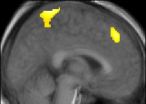(Press-News.org) DES MOINES, IOWA (14 October 2010)—Crop specialists in Kenya and Uganda have laid the groundwork for confined field trials to commence later this year for new varieties of maize genetically modified to survive recurrent droughts that threaten over 300 million Africans for whom maize is life, according to a speech given today by the head of the African Agricultural Technology Foundation (AATF) at the World Food Prize Symposium.
Scientists working with AATF believe it's important to explore the potential of biotechnology to maintain and increase food production in Africa, given the large number of families dependent on maize, and warnings that maize yields could drop dramatically as climate change increases drought frequency and severity across the continent.
There is preliminary evidence that the Water Efficient Maize for Africa (WEMA) varieties, which were developed through a public-private partnership, could provide yields 24-35 percent higher than what farmers are now growing.
The process for testing the WEMA varieties has been informed by a series of "mock trials" conducted in 2009 in Kenya and Tanzania. The mock trials carefully simulated field conditions, procedures, and regulatory oversight that will occur in the actual trials.
"The mock trials have provided an opportunity for researchers working on the WEMA project to fine-tune the procedures of carrying out the actual transgenic trial in 2010," according to Daniel Mataruka, executive director of AATF.
The mock trials were supervised by national biosafety committees in both countries and adhered to all requirements that will apply to transgenic plants.
"Everything we have seen in the simulated trials shows that we can safely test transgenic maize varieties in carefully controlled and confined field trials in Africa and evaluate their potential to produce high yields in drought conditions," said Dr. James Gethi, the WEMA-Kenya country coordinator.
Drought is the most important constraint to African agricultural production, and its effects are particularly severe on maize, which is the most widely-grown staple on the continent. For millions of small-scale farmers who rely on rainfall to water their crops, risk of crop failure from drought is a major barrier to the adoption of improved farming practices.
A more reliable harvest could give farmers the confidence to invest in improved techniques that could further boost their yields and incomes.
The push to develop drought-tolerant varieties has been given added urgency by threats likely to come from climate change. A study by scientists at the Consultative Group on International Agricultural Research (CGIAR) warns that by 2050, climate change could make droughts more frequent and intense, potentially causing maize yields to drop by 20 percent or more in parts of East Africa, including northern Uganda and southern Sudan, and semi-arid areas of Kenya and Tanzania. The Food and Agriculture Organization of the United Nations (FAO) has acknowledged biotechnology as a powerful tool in the effort to develop drought-tolerant crops.
The drought-tolerant WEMA varieties are being developed under a partnership involving AATF, the International Maize and Wheat Improvement Center (CIMMYT), Monsanto, and the national agriculture research systems in Kenya, Tanzania, Mozambique, South Africa and Uganda. CIMMYT has provided high-yield maize varieties adapted to African conditions, while Monsanto has provided proprietary genetic resources (germplasm), advanced breeding tools and expertise, and drought-tolerant transgenes developed in collaboration with BASF.
According to AATF, experience has shown that the gains possible through advanced breeding and biotechnology are greater and faster than those that can be achieved through breeding alone.
"There have already been positive gains made in drought tolerance using traditional breeding methods by our partners," said Mataruka. "WEMA is working to further increase those gains in drought tolerance in hybrids adapted to eastern and southern Africa through both advanced breeding techniques and biotechnology."
If the transgenic corn is found to be safe and successful, the new varieties will be made available to smallholder farmers royalty-free. Under its agreement with its partners, any approved varieties would be licensed to AATF, which would then distribute to farmers through local seed supplies at a price competitive with other types of maize seed. The project partners expect that pricing will not be influenced by the requirement to pay royalties, as none of the partners will receive any royalty payment from seed companies for the drought tolerant lines/transgenic trait incorporating their intellectual property protected technology.
Pending regulatory approval, at least 12 WEMA varieties will be tested in confined field trials (CFTs) in Kenya, Uganda, Tanzania, South Africa and Mozambique. After the trials, the transgenic corn produced in the CFTs will be destroyed in compliance with the regulations in the respective countries.
###
The African Agricultural Technology Foundation (AATF) is a not-for-profit organisation that facilitates and promotes public/private partnerships for the access and delivery of appropriate proprietary agricultural technologies for use by resource-poor smallholder farmers in Sub-Saharan Africa (www.aatf-africa.org).
END
Learning from competitors is a critically important form of learning for animals and humans. A new study has used brain imaging to reveal how people and animals learn from failure and success.
The team from Bristol University led by Dr Paul Howard-Jones, Senior Lecturer in Education in the Graduate School of Education and Dr Rafal Bogacz, Senior Lecturer in the Department of Computer Science, scanned the brains of players as they battled against an artificial opponent in a computer game.
In the game, each player took turns with the computer to select one of four ...
BEER-SHEVA, ISRAEL, October 13, 2010 — A new study conducted by a researcher at Ben-Gurion University of the Negev (BGU) for Jerusalem's Taub Center for Social Policy Studies in Israel reports that Israeli's have a higher life expectancy on average than Americans and residents of other OECD (Organization for Economic Cooperation and Development) countries.
According to the most recent data, from 2005, the average American life expectancy is now 78 years; for Israeli Jews, approximately 81 years and Israeli Arabs, 79 years. Japan has the highest life expectancy of OECD ...
University of Granada researchers have developed a new computer technique that allows to "train" computers to interpret the visual contents of a video or picture. This advance will allow to classify automatically pictures basing on whether individuals or specific objects are present in such images. Videos can also be classified according to specific poses.
At present, computer search and classification of images is made basing on the name of the file, folder or on features as date or size, but the visual information contained was never used for classification purposes. ...
HOBOKEN, N.J. (Sept. 13, 2010) – More than 50 million Americans will experience some degree of tinnitus in their lifetime, according to the American Tinnitus Association. Tinnitus is a hearing condition that causes the constant misperception of sound, including hissing, ringing and rushing noises. A study recently published in Panminerva Medica reveals that Pycnogenol® (pic-noj-en-all), an antioxidant plant extract derived from the bark of the French maritime pine tree, is effective in relieving tinnitus symptoms by improving blood flow in the inner ear.
"Impaired blood ...
San Francisco, Calif., 13 October, 2010 - Elsevier Business Intelligence, publisher of PharmAsia News, IN VIVO and "The Pink Sheet," today announced the agenda for Windhover's 2nd PharmAsia Summit (Oct. 25-26). This year's Summit will bring top biopharma leaders from Asia and the U.S. to San Francisco to share what works and what doesn't in China, India, Japan and the Pacific Rim.
At the PharmAsia Summit, you'll hear Asia strategies and case studies from industry leading experts on dealmaking, commercial strategy, outsourcing, regulatory risks, IP protection, and pricing ...
(NEW YORK, NY, October 13, 2010) – Before Alzheimer's patients experience memory loss, the brain's neurons have already suffered harm for years.
A new study in mouse models by researchers at Columbia University Medical Center has found that the brain's mitochondria -- the powerhouses of the cell -- are one of the earliest casualties of the disease. The study, which appeared in the online Early Edition of PNAS, also found that impaired mitochondria then injure the neurons' synapses, which are necessary for normal brain function.
"The damage to synapses is one of the ...
Washington, DC, 13 October 2010 - Mental disorders in children are often difficult to identify due to the myriad of changes that occur during the normal course of maturation. For the first time, researchers at the National Institute of Mental Health have reported on the prevalence data on a broad range of mental disorders in a nationally representative sample of U.S. adolescents, which show that approximately one in five children in the U.S. meet the criteria for a mental disorder severe enough to disrupt their daily lives.
The prevalence of the mental health disorders ...
Astronomers using the South Pole Telescope report that they have discovered the most massive galaxy cluster yet seen at a distance of 7 billion light-years. The cluster (designated SPT-CL J0546-5345) weighs in at around 800 trillion Suns, and holds hundreds of galaxies.
"This galaxy cluster wins the heavyweight title. It's among the most massive clusters ever found at this distance," said Mark Brodwin, a Smithsonian astronomer at the Harvard-Smithsonian Center for Astrophysics. Brodwin is first author on the paper announcing the discovery, which appeared in the Astrophysical ...
CHAMPAIGN, lll. — A diet rich in the plant compound luteolin reduces age-related inflammation in the brain and related memory deficits by directly inhibiting the release of inflammatory molecules in the brain, researchers report.
Luteolin (LOOT-ee-oh-lin) is found in many plants, including carrots, peppers, celery, olive oil, peppermint, rosemary and chamomile.
The new study, which examined the effects of dietary luteolin in a mouse model of aging, appears in the Journal of Nutrition.
The researchers focused on microglial cells, specialized immune cells that reside ...
BLOOMINGTON, Ind. -- The red, metal-laden sludge that escaped a containment pond in Hungary last week could be made less toxic with the help of carbon sequestration, says an Indiana University Bloomington geologist who has a patent pending on the technique.
The bauxite residue now covers 40 square kilometers south of the Danube River, and has caused the deaths of eight Hungarians and injured at least 150. The residue also has caused the extinction of life in a local river and as yet unknown environmental damage elsewhere. While human deaths in the wake of the disaster ...



